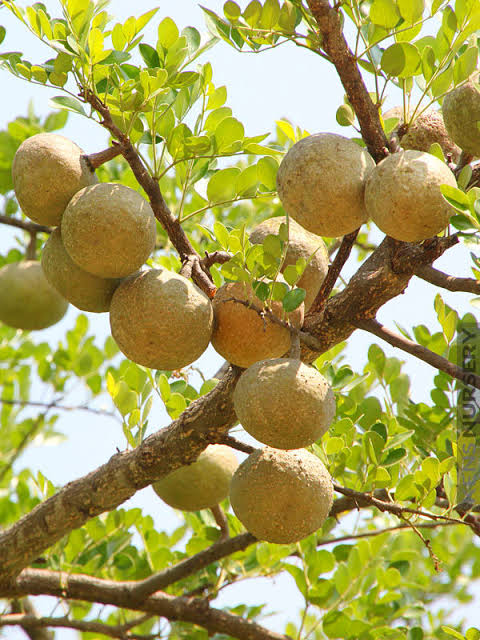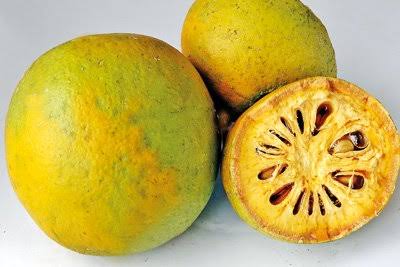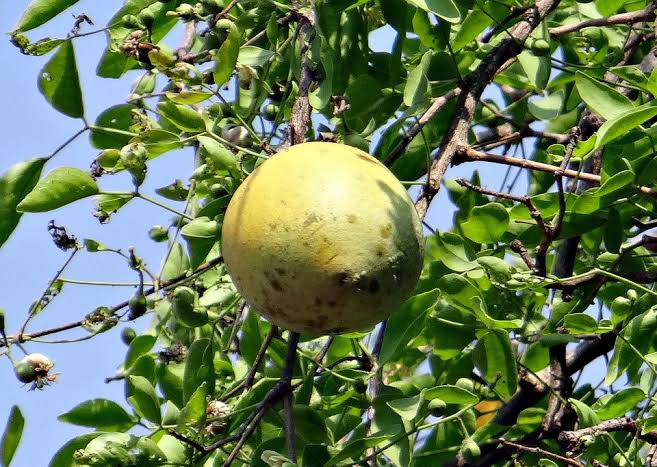
Bel (Aegle marmelos)
English name: Wood apple
Tamil: Vilvamaran
Malyalam: Koolam
Kannada: Belladi hannu
What is Bel?
Bel or Aegle marmelos is a spiritual, religious and medicinal plant, native of India and Bangaladesh and spread throughout South East Asia. The fruit takes about 10 to 11 months to ripen.
Wood Apple is a sweet, aromatic and astringent in nature. Bel has many benefits and uses such as to cure tuberculosis, hepatitis, dysentery, constipation, peptic ulcer, piles and many more, useful in worm infestation and stomach related problems.

MEDICINAL BENEFITS:
1.Bel is known for its medicinal values because of the presence of many bio-chemical substance such as alkaloids, antioxidants, polysaccharides and essential oils.
2.The fleshy inner product of bael is curative, pesticidal, nutritive as well as therapeutic in nature, which is used for the treatment of many diseases and disorders.
3.Wood apple leaves are of therapeutic value and used in lowering of blood cholesterol.
4.It is anti-inflammatory in nature. Its extracts when applied on the exposed area, help to cure inflammation.
5.Bael’s roots are antidiarrhoetic, antidote to snake venom and anti-inflammatory for healing.

BAEL JUICE BENEFITS:
1.Bel juice is useful in curing of constipation because of its laxative properties.
2.Bel juice gives great comfort in heartburn, acidity, hyperacidity and indigestion.
3.If you are suffering from intestinal parasites, it is advisable to drink bael juice because of its antidote nature.
4.Aegle marmelos juice is good for heart and brain. Bel juice mixed with Ghee, is beneficial in prevention of heart disease. 5.It is also used as heart tonic.
6.Chewing of raw leaves of Bel help to solve many gastric problems.
7.Bael juice is rich in vitamin C, and good for scurvy treatment.
Religious importance of Bael:
Bael has great religious significance. In Hindu tradition, the leaves and the fruit of the plant are offered to god during prayer, especially god Shiva. Its leaves are also used to worship Parvati and Viva Rupra. The fruit is used in religious ceremonies and rituals and its mentioned is also seen in Vedas and Mahabharata.






